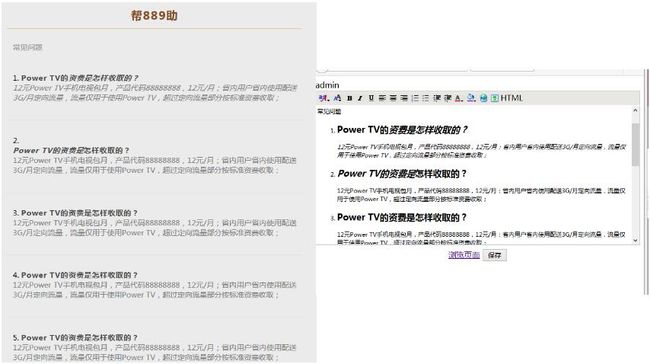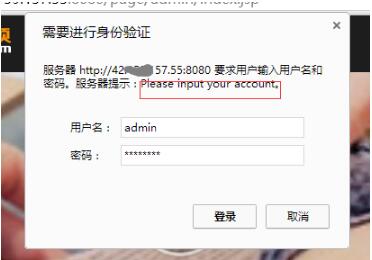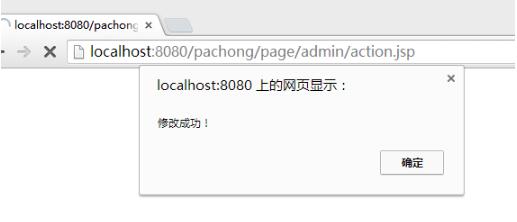前言
实现一个简易的页面编辑器是大家在学习jsp的时候经常会遇到的一个需求,发现网上这方便的资料不多,所以想着自己总结下,本文详细介绍了JSP简易页面编辑器的实现方法,下面话不多说,来一起看看详细的介绍:
需求
提供一页面,放置“帮助”、“版权”文字内容,特点:静态页面,无须读数据库,只是应付字眼上频繁的修改;没有复杂的交互,无须 JavaScript;没有图片,不需要文件上传。
给出的方案:提供一页面和简易的后台管理,功能单一,只是编辑页面(只是修改字体、大小、粗体、斜体等的功能)。
实现思路:纯 JSP 展示,管理界面用 HTTP Basic 登入,通过一个 js 写成 HTML 编辑器修改页面内容。直接修改服务器磁盘文件。
界面如下,右图是后台编辑。
值得一提的是,Tomcat 7 下 JSP 默认的 Java 语法仍旧是 1.6 的。在 JSP 里面嵌入 Java 1.7 特性的代码会抛出“Resource specification not allowed here for source level below 1.7”的异常。于是需要修改 Tomcat/conf/web.xml 里面的配置文件,找到
jsp org.apache.jasper.servlet.JspServlet fork false xpoweredBy false compilerSourceVM 1.7 compilerTargetVM 1.7 3
访问的 jsp 其实只有两个 /index.jsp 和 /admin/index.jsp,分别是静态页面和后台编辑页面。/admin/action.jsp 用于接收保存的 action,数据由表单 POST 过来。functions.jsp 就是全部的业务逻辑代码,通过 %@include file="functions.jsp"% ,它不能单独给外界 url 访问。
我们先看看 /index.jsp。
<%@page pageEncoding="UTF-8"%>帮助 帮助
常见问题
Power TV的资费是怎样收取的?
12元Power TV手机电视包月,产品代码88888888,12元/月;省内用户省内使用配送3G/月定向流量,流量仅用于使用Power TV,超过定向流量部分按标准资费收取;
Power TV的资费是怎样收取的?
12元Power TV手机电视包月,产品代码88888888,12元/月;省内用户省内使用配送3G/月定向流量,流量仅用于使用Power TV,超过定向流量部分按标准资费收取;
Power TV的资费是怎样收取的?
12元Power TV手机电视包月,产品代码88888888,12元/月;省内用户省内使用配送3G/月定向流量,流量仅用于使用Power TV,超过定向流量部分按标准资费收取;
Power TV的资费是怎样收取的?
12元Power TV手机电视包月,产品代码88888888,12元/月;省内用户省内使用配送3G/月定向流量,流量仅用于使用Power TV,超过定向流量部分按标准资费收取;
Power TV的资费是怎样收取的?
12元Power TV手机电视包月,产品代码88888888,12元/月;省内用户省内使用配送3G/月定向流量,流量仅用于使用Power TV,超过定向流量部分按标准资费收取;
Power TV的资费是怎样收取的?
12元Power TV手机电视包月,产品代码88888888,12元/月;省内用户省内使用配送3G/月定向流量,流量仅用于使用Power TV,超过定向流量部分按标准资费收取;
Power TV的资费是怎样收取的?
12元Power TV手机电视包月,产品代码88888888,12元/月;省内用户省内使用配送3G/月定向流量,流量仅用于使用Power TV,超过定向流量部分按标准资费收取;
这份 JSP 与一般 JSP 并无特异,只不过大家有没有留意到两段注释: 和 ――这就是我们约定的“可编辑”范围。当然,使用自定义的 HTML Tag 也可以,只要定义了一个范围即可。一份网页,无非是 HTML。对于其中欲编辑的东西,我们定义一个范围指明哪些地方需要编辑,就可以了。至于为什么不让全部的页面可以编辑?是因为我们不想用户对页面其它部分进行编辑,万一修改了的关键地方造成了错误,那可不好。
好了,怎么让这个 /index.jsp 编辑呢?就是利用 Java 读取磁盘的方法来做的。在这个之前,得先登录到 /admin/index.jsp。这里我们通过 HTTP Basic Authorization 来做用户认证,无须数据库。如果需要修改 账号密码,打开 admin/functions.jsp,编辑头部分即可:
<%! public static final String userid = "admin", pwd = "123123"; .... %>
不过笔者调试 HTTP Basic Authorization 遇到了个小问题,就是浏览器弹出的对话框,不知怎么修改其中的提示文字,试过几种方法,要么不显示,要么乱码。如果知道的童鞋还请告知一二!
action.jsp 也要作认证的限制,不然等于是个漏洞可以让别人 POST 任何数据到页面。
<%@page pageEncoding="UTF-8"%>
<%@include file="functions.jsp"%>
<%
if (checkAuth(request.getHeader("Authorization"), userid, pwd)) {
request.setCharacterEncoding("utf-8");
if (request.getMethod().equalsIgnoreCase("POST")) {
String contentBody = request.getParameter("contentBody"), path = Mappath(getEditJSP(request));
System.out.println("path:::" + path);
save_jsp_fileContent(path, contentBody);
out.println("");
} else {
out.println("method error");
}
} else {
%>
非法登录!
<%
}
%>
修改下页面,点击保存就可以修改页面了。
至于 HTML 如何编辑?这个答案想必大家都清楚,使用 HTML 可视化编辑器即可,在线的哦,而不是什么 Dreamweaver、FrontPage、VS Web 之类啦。老人们用过的就是有 FCKEditror 呀、TinyMCE Editor,近几年好像喜欢用国产了,我就不知道了。现在这个用的是我自己写,功能比较单一的。
核心逻辑是通过下面的代码搞定的。
<%@page pageEncoding="UTF-8" import="sun.misc.BASE64Decoder, java.io.*"%>
<%!
public static final String userid = "admin", pwd = "86006966";
// 检查 HTTP Basic 认证
/**
* 是否空字符串
*
* @param str
* @return
*/
public static boolean isEmptyString(String str) {
return str == null || str.trim().isEmpty();
}
/**
* 是否不合法的数组
*
* @param arr
* @return
*/
public static boolean isBadArray(String[] arr) {
return arr == null || arr.length != 2;
}
/**
*
* @param authorization
* 认证后每次HTTP请求都会附带上 Authorization 头信息
* @param username
* 用户名
* @param password
* 密码
* @return true = 认证成功/ false = 需要认证
*/
public static boolean checkAuth(String authorization, String username, String password) {
if (isEmptyString(authorization))
return false;
String[] basicArray = authorization.split("\\s+");
if (isBadArray(basicArray))
return false;
String idpass = null;
try {
byte[] buf = new BASE64Decoder().decodeBuffer(basicArray[1]);
idpass = new String(buf, "UTF-8");
} catch (IOException e) {
e.printStackTrace();
return false;
}
if (isEmptyString(idpass))
return false;
String[] idpassArray = idpass.split(":");
if (isBadArray(idpassArray))
return false;
return username.equalsIgnoreCase(idpassArray[0]) && password.equalsIgnoreCase(idpassArray[1]);
}
/**
* 可编辑标识开始
*/
private final static String startToken = "";
/**
* 可编辑标识结束
*/
private final static String endToken = "";
/**
* 根据 页面中可编辑区域之标识,取出来。
*
* @param fullFilePath
* 完整的 jsp 文件路径
* @return 可编辑内容
* @throws IOException
*/
public static String read_jsp_fileContent(String fullFilePath) throws IOException {
String jsp_fileContent = readFile(fullFilePath);
int start = jsp_fileContent.indexOf(startToken), end = jsp_fileContent.indexOf(endToken);
try {
jsp_fileContent = jsp_fileContent.substring(start + startToken.length(), end);
} catch (StringIndexOutOfBoundsException e) {
jsp_fileContent = null;
String msg = "页面文件" + fullFilePath + "中没有标记可编辑区域之标识。请参考:" + startToken + "/" + endToken;
throw new IOException(msg);
}
return jsp_fileContent;
}
/**
* 请求附带文件参数,将其转换真实的磁盘文件路径
*
* @param rawFullFilePath
* URL 提交过来的磁盘文件路径,可能未包含文件名或加了很多 url 参数
* @return 完整的磁盘文件路径
*/
static String getFullPathByRequestUrl(String rawFullFilePath) {
if (rawFullFilePath.indexOf(".jsp") == -1)
rawFullFilePath += "/index.jsp"; // 加上 扩展名
if (rawFullFilePath.indexOf("?") != -1) // 去掉 url 参数
rawFullFilePath = rawFullFilePath.replaceAll("\\?.*$", "");
return rawFullFilePath;
}
/**
* 保存要修改的页面
*
* @param rawFullFilePath
* 真实的磁盘文件路径
* @param newContent
* 新提交的内容
* @throws IOException
*/
public static void save_jsp_fileContent(String rawFullFilePath, String newContent) throws IOException {
String fullFilePath = getFullPathByRequestUrl(rawFullFilePath); // 真实的磁盘文件路径
String jsp_fileContent = readFile(fullFilePath), toDel_fileContent = read_jsp_fileContent(fullFilePath);// 读取旧内容
//System.out.println(jsp_fileContent);
//System.out.println(toDel_fileContent);
if (toDel_fileContent != null) {
jsp_fileContent = jsp_fileContent.replace(toDel_fileContent, newContent);
save2file(fullFilePath, jsp_fileContent); // 保存新内容
} else {
throw new IOException("页面文件中没有标记可编辑区域之标识。请参考: startToken/endTpoken");
}
}
/**
* 读取文件
*
* @param filename
* @return
* @throws IOException
*/
public static String readFile(String filename) throws IOException {
File file = new File(filename);
if (!file.exists())
throw new FileNotFoundException(filename + " 不存在!");
try (FileInputStream is = new FileInputStream(file);) {
String line = null;
StringBuilder result = new StringBuilder();
try (InputStreamReader isReader = new InputStreamReader(is, "UTF-8");
BufferedReader reader = new BufferedReader(isReader);) {
while ((line = reader.readLine()) != null) {
result.append(line);
result.append('\n');
}
} catch (IOException e) {
System.err.println(e);
}
return result.toString();
} catch (IOException e) {
System.err.println("�x取文件流出�e!" + filename);
throw e;
}
}
/**
* 写文件不能用 FileWriter,原因是会中文乱码
*
* @param filename
* @param content
* @throws IOException
*/
public static void save2file(String filename, String content) throws IOException {
try (FileOutputStream out = new FileOutputStream(filename);
// OutputStreramWriter将输出的字符流转化为字节流输出(字符流已带缓冲)
OutputStreamWriter writer = new OutputStreamWriter(out, "UTF8");) {
writer.write(content);
} catch (IOException e) {
System.err.println("写入文件" + filename + "失败");
throw e;
}
}
/**
* 输入一个相对地址,补充成为绝对地址 相对地址转换为绝对地址,并转换斜杠
*
* @param relativePath
* 相对地址
* @return 绝对地址
*/
public String Mappath(String relativePath) {
String absoluteAddress = getServletContext().getRealPath(relativePath); // 绝对地址
if (absoluteAddress != null)
absoluteAddress = absoluteAddress.replace('\\', '/');
return absoluteAddress;
}
public String getEditJSP(HttpServletRequest request) {
String uri = request.getRequestURI().replaceAll("admin/\\w+", "index");
uri = uri.replace(request.getContextPath(), "");
return uri;
}
%>
用户凭账号密码登入简易的后台,通过可视化编辑器即可修改页面内容,立刻修改,立刻产生效果,简单快捷――把页面开放出来允许自主编辑这样会提高效率――减少来回修改的次数。
完整源码下载:http://xiazai.jb51.net/201707/yuanma/jsp-page(jb51.net).rar
总结
以上就是这篇文章的全部内容了,希望本文的内容对大家的学习或者工作能带来一定的帮助,如果有疑问大家可以留言交流,谢谢大家对脚本之家的支持。


